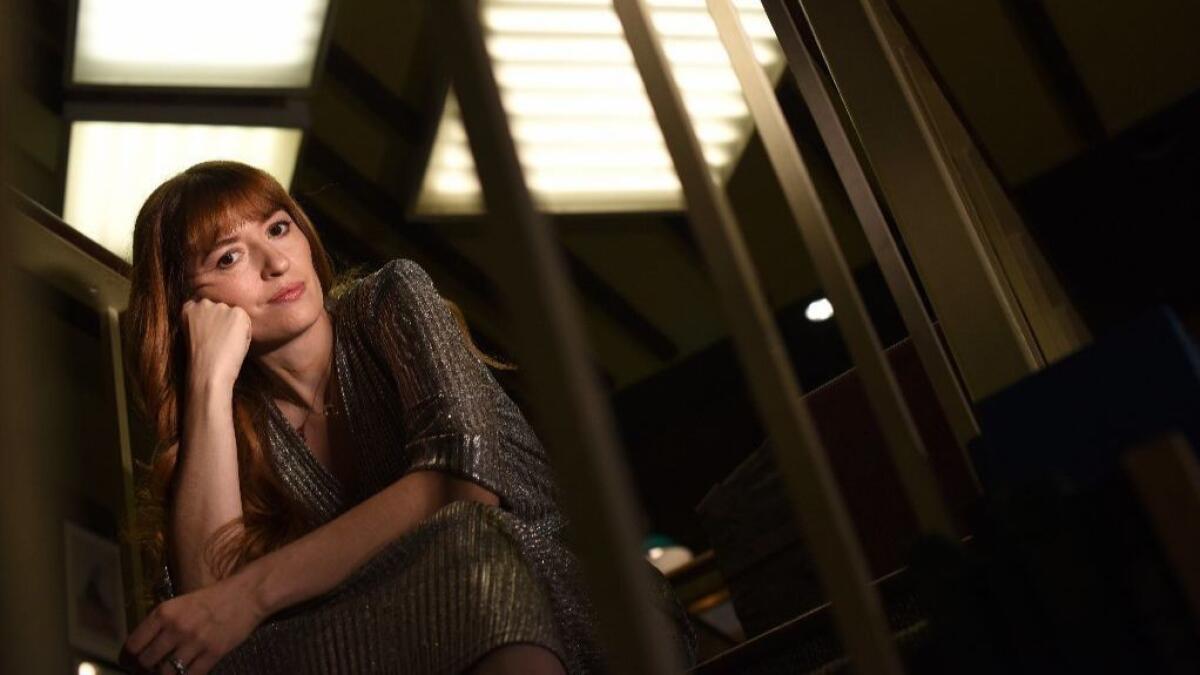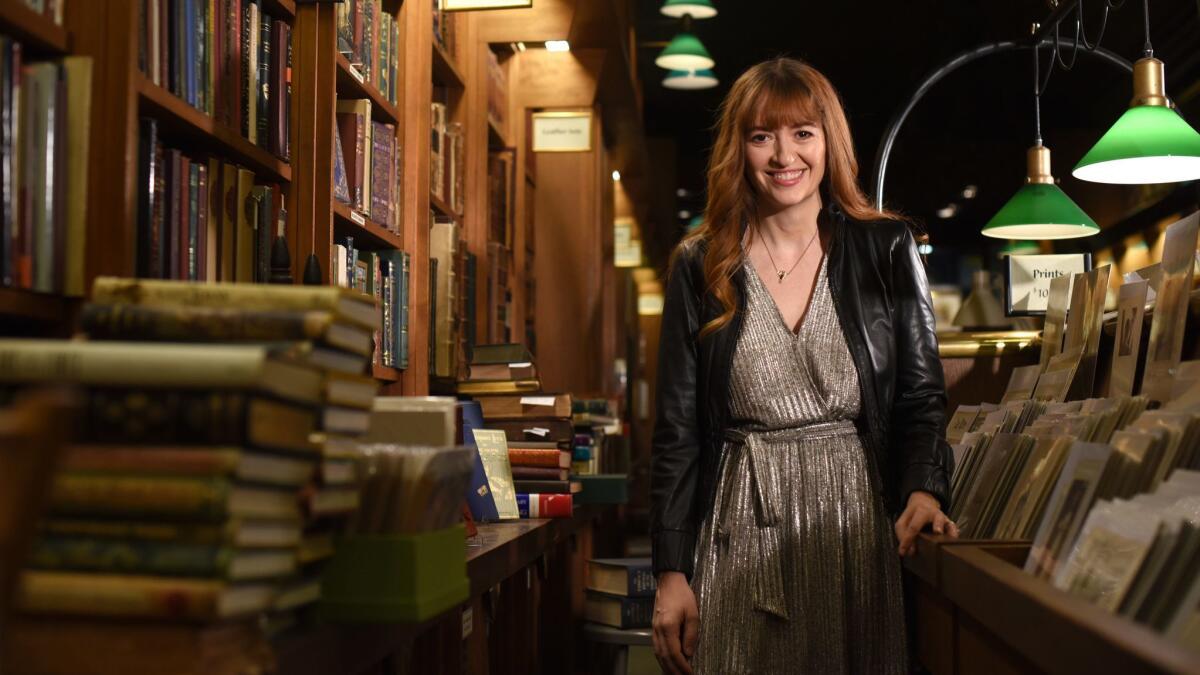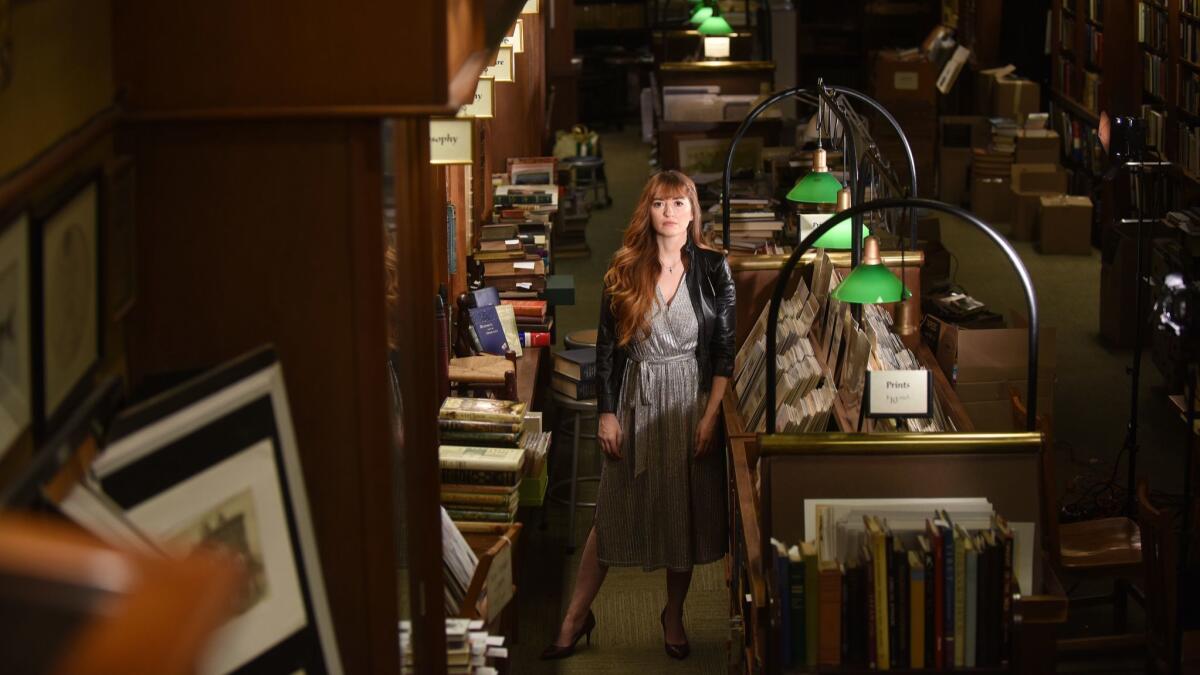Q&A: For ‘Can You Ever Forgive Me?’ director Marielle Heller, it’s time for different kinds of stories to be told

- Share via
Reporting from New York — Director Marielle Heller has returned to the scene of the crime: New York City’s Argosy Book Store. To clarify: Not her crime, but the crimes of Lee Israel, an author who forged letters by legendary names and sold them as rarities in bookshops just like this one during the 1990s, and who’s the subject of Heller’s newest film, “Can You Ever Forgive Me?” (Scenes from the film were also shot here.) But Heller, who also helmed 2015’s “The Diary of a Teenage Girl” and is about to wrap up her untitled Mr. Rogers film starring Tom Hanks, advises the Envelope: Don’t judge a book — or any of her protagonists — by their covers.

You’re in the final days of shooting your movie about Fred Rogers. Is there a thread between your choices of films?
I’m surprised that I’m making a movie about men because I’m always like, “I want to make movies about women.” And I still do, and I still will — but there is something about Mr. Rogers that drew me away. I was thinking they’re each trying to talk about something that people are uncomfortable talking about.
How so?
With “Diary,” it was about sex and teenage-hood and what it is to be a young woman; with Lee and “Can You Ever Forgive Me?” in many ways I feel like it’s a movie about loneliness and poverty and what it is to be a woman who’s forgotten by society. The Mr. Rogers movie talks about your feelings and how uncomfortable we all are about truly talking about our pain. They’re all movies about human beings trying to navigate through the world — they’re not about robots.
Writing and directing meant I was more in control of when I get to do things and how I get to do them.
— Director Marielle Heller
Lee is a very different sort of character than we’re used to seeing Melissa McCarthy play. Why was she right for the role?
Good comedians tend to be very in touch with [their] humanity. Melissa is somebody who taps into the plight of humanity in a deeper way. She found Lee as sort of endearing as I did and wasn’t worried about her coming off the wrong way. That’s what I’ve just discovered with actors, if they can approach a role and connect to it, then they’re going to be able to bring their humanity to it. Whereas, if they judge it right off the bat, you’re probably in trouble.
You acted for years before turning to directing; is performing no longer on your plate?
Never say never. It was definitely my first love, and I feel like I will act again in my life. But I wasn’t getting parts that I felt were pushing me the way I wanted to be pushed, and I was tired of waiting for somebody else to tell me when I could create art. Writing and directing meant I was more in control of when I get to do things and how I get to do them. And I think I’m a bit of a control freak.
How much do you identify with your protagonists as you’re making any given film?
I felt like I was Minnie from “Diary,” and in many ways I feel that way about Lee too. I connect to both of them not because I see them as somehow hard to love — but because I see them as parts of myself. Lee is an artist struggling to be seen. That’s something we can all relate to. With Minnie, nobody’s telling her story, nobody’s telling our story — how it truly feels to be in our skin. We as a society are afraid of teenage girls; we’re afraid of their sexuality. And truthfully, we are like that about women over 50 too. It’s important that we tell their story now.
You have a 3-year-old now; does that color how you see the world and the projects you take on?
I’ve always been someone who is highly emotional and highly sensitive, and having a kid makes you more so because you start to view the world through their eyes. It hurts in so many ways because the world is a tough place. It’s also made me have a lot less time for anyone who is less than kind to anyone they work with. You do change the stories you want to tell after you have a kid. You want to do good in the world.

More to Read
From the Oscars to the Emmys.
Get the Envelope newsletter for exclusive awards season coverage, behind-the-scenes stories from the Envelope podcast and columnist Glenn Whipp’s must-read analysis.
You may occasionally receive promotional content from the Los Angeles Times.









